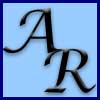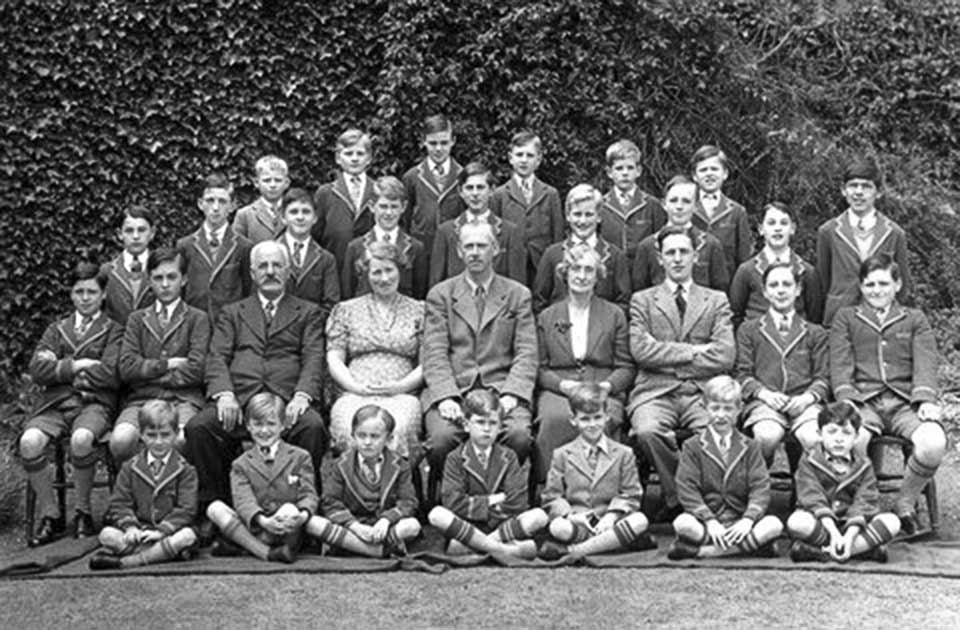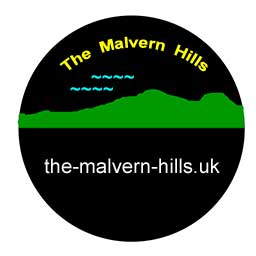
Angus and Rosemary's Miscellany
of Malvern - Local History
|
History menu > Memories of The Hill School in Great MalvernTony Gwynn-Jones, who now lives in Australia, remembers attending the Hill School in Great Malvern, Worcestershire, and has sent a school photograph and the following account of his time in Malvern.
I think this photo of the Hill School was probably taken during the summer term 1940. The staff, from left to right, are: Mr Binns (came just to teach Latin 1 or 2 days a week) Mrs Lyster (Matron, Housekeeper etc) Mr Lyster (Headmaster & Owner) Miss Hill (Teacher) Mr Swainson (One of two Swainsons while I was there - they both were old boys of Gresham's School in Norfolk) I am sitting next to Mr Binns and my brother, Patrick, is standing behind him. My other brother Terry is 2nd left sitting on ground. Edward Hardwicke is in the centre, sitting on the ground - actor in later life. John Medway - sitting next to Mr Swainson - came there when he was four; his parents were in Malaya. My brothers and I were dayboys. Ten of the twenty five in the photo were dayboys. I can name some of the boys if anyone is interested! Quite a few of the boarders had parents serving overseas. Life at The Hill SchoolI was at the Hill School from May 1934 to July 1940. First location was, I think, 'Springbank', on Graham Road and after a term or two we moved to the large house on Worcester Road. There was a Motor Dealer at the main gate, Rothwell and Milbourne, I think. I always remember that the son had a Jaguar SS100 - what a great car! And they sold ROP petrol (Russian Oil & Petroleum Company), it was 10d a gallon! When I think back it was an excellent primary school. Ages ranged from 4 to 14 and the school was divided into three classes. Class III was the entry and Class I was the senior class. So you see there was a lot of one on one teaching with only eight or nine boys in a class. We learnt Latin & French from age 8 or 9. Sometimes on a fine day Mr L would say to his class - "Going to be a nice day, we'll go for a walk." I remember one day on the path from the Wyche Cutting to the Beacon him stopping and saying "What is that glistening in the rock?" Someone said "It's gold, sir." "Foolish boy," was the response, followed by an explanation of fool's gold - iron pyrites. A bit later we stopped and discussed Bredon Hill and its position in the Severn Valley as a medial moraine (I think!) and a further discussion on glaciers which we had done in geography class earlier on. At 10.45 each morning we would have milk or cocoa, and then it was playtime (so called) and we had until 11.30 to play in the 6 acre wood on the side of the hill. We had to change into boiler suits and plimsolls for this. No supervision - great fun. A big game was playing Tarzan on any branches hanging down. Now and again Mr L would chop down a tree for firewood and a gaggle of small boys would drag it to the wood shed for sawing - Mr L on the big end of a large cross cut saw and a boy flipping backwards and forwards on the other end! We also had courtyard cricket - in the yard of the outbuildings. This was played with a 2 inch hazel stick as bat and a tennis ball. It was very good eyesight training. Over the wall was 6 & out, of course! Every so often Mr L would come in and say "Take a piece of paper general knowledge test!" We then exchanged papers and marked each other. I think my general knowledge has been pretty good ever since! After lunch Mr Lyster would read to us - Charles Dickens was a favourite author. He also read extracts from the papers. The Lysters were Christian Scientists - during morning prayers, those of us who were not, used to sit at a very large table outside, where there were the daily papers. These papers were read keenly and I assume most of us have followed this pattern ever since! There was a large walled kitchen garden and when things like the red currants were ripe we helped to pick them. We used to tell my father that we were being used as slave labour and he was paying. Sport was on a ground behind the Art/Technical School in Albert road - I see from Google Earth it is now a college. It's next to the tennis courts. We used to play games most afternoons, I think. Matches were played against Cleve Court & Southlea. For away matches we all packed into Mr Lyster's large, canvas topped, Standard(?) car! There was also a tennis court at school, between the house and Worcester Road. It all amounted to a true "Education" in the literal meaning of the word. I wish it was still possible today! World War TwoWWII changed things a little, I am sure my parents took it a lot more seriously! Edward Hardwicke's aunt, Mrs Pickard, was involved in a plan to send children to the United States. Much against our will we three boys were examined and selected to go. However, the sinking of the 'City of Benares' stopped the scheme of evacuating any children and so we didn't have to go. We were thrilled I have no record of my parents' feelings! During my last year (I think) I went back to school after games, had tea and then did prep until 7 or 7.30 pm and then walked home, about a mile; we lived in Madresfield Road. The blackout improved my night navigation during the winter, walking home after prep. I think the first air raid warning was in September 1939 - we were not far from what we called the gasworks on Pickersleigh Road - it was actually the power station but also had big gasholders, which I assume came from the gas plant at Leigh Sinton. It had a very loud hooter that sounded. There was also a siren behind the Police Station, I think. Their joint effort was pretty terrifying to three young boys! After Dunkirk the war came a bit closer. Large numbers of soldiers were sent from South East England to Malvern where they occupied a number of the large, unoccupied houses in the town. They came in requisitioned coaches which were all sprayed khaki. There were rows of them parked under trees along the road - away from prying planes. Across from the school there was such a house. It had no hot water so the troops came up to the school for showers/baths. I don't remember if there were any showers there. Wherever troops went they had to carry their rifle and 50 rounds of ammo, so if one went to the cinema all the soldiers that were there had their rifles standing up between their knees. My brother, Patrick (lives in Thetford now) and I, in the knowledge that the Germans were certainly coming, had a spot where we were going to hide from them on North Hill, Ivy Scar Rock I think it was. We had no plans for food or water so just as well they didn't come! About this time Malvern College was taken over by TRE (Telecommunications Research Establishment). My father had attended the Marconi School of Wireless London in 1915 and went to sea through WWI as a wireless operator, mainly on troopships to Australia and back. So he had a few mates at TRE and we ended up with an American (Cyril Goode) billeted on us, who was a member of the Civilian Technical Corps - I assume to acquaint our soon to be allies with the principles of radio location - I think they named it Radar. It was suggested early in 1940 that I sit (on 28th & 29th May 1940 significant Dunkirk dates) for a King's Scholarship to Kings Worcester - my success was a great help to the family finances! I think the dayboy fees were 12 guineas a term covered by the scholarship. The exam papers were sent to Mr L who invigilated - very trusting! I sat in his study to do the exams. (The day fees at The Hill School were about 8 guineas). In those days there was not a secondary school in Malvern except for the private, mainly boarding, schools; so most secondary pupils went by train to Worcester to Kings, the Grammar School, Alice Ottley, and, I think, Girls' Technical School (?). We used to catch the 8.14 am Newport - London GWR express arriving in Foregate Street about 8.35 am, just in time to get to prayers in College Hall at Kings. The season ticket was 25/9d a term as I remember! A Kings School rule was that in the summer holidays we had to help with the harvest and they ran harvest camps on a parent's property near Welford on Avon. I attended one. For other summer holidays I worked on the farm of a school friend's family, Bill Medcalf at New Farm, Guarlford. Mrs Medcalf always turned on a big lunch which certainly supplemented ones rations. My father had been a very keen radio ham for years. He was a member of the Radio Society of Great Britain. I know that most nights through the war he had a listening schedule for certain frequencies and posted off the results to a PO Box. Never thought a thing about it until I read about Bletchley Park! Was that where the transcriptions were going? We had a few bombs dropped in a stick over the Link Common. There was also a parachute mine dropped near Little Malvern, I think. The Luftwaffe could be heard quite often, but bombing wasn't a big feature. The RAF dropped foil strips (they called it window) now and again, obviously working with TRE on Radar disruption research. The Civil DefenceIn July 1941, not quite 15 years old, I joined the ARP (Air Raid Precautions) - soon to become "Civil Defence" - as a messenger in the Report Centre at the Police Station. A school friend, Peter Lucas, encouraged me to join, he still lives in Malvern. (In September 1939 we had both been involved in filling sand bags, to protect the police station.) I think I was on duty one night a week to start. In 1942 the name was changed to 'Civil Defence' and we were issued with uniform - navy blue battle dress. I was on duty every fourth night and we suddenly were paid 4 shillings a night! For someone on a shilling a week pocket money I couldn't believe my luck. We felt pretty important as we were issued with Civilian Duty gasmasks, which one had to carry everywhere in the early days. These were far superior to the Civilian gasmasks that came in a cardboard carry box with a string sling! The Report Centre accommodation was in a hall next to the MUDC offices in Priory Park. There would be about 6 or 7 of us on duty at a time. Fred Rimmer, an accountant I think, seemed to be in charge of the nights I was on duty. Other names that come to mind are Lionel Thomas, Betty Langley, June Juniper. John Archer & Geoff Twitty were also members. They left to join the RAF where, I think, they were both lost in action. We played a lot of table tennis, and had tea and cake for supper. The next morning I had to move pretty quickly to get home, have breakfast and catch the train to school. I was in the Royal Engineers from 1944 to 1949 (3 years in Egypt & Libya) and served in the SAS TA for a year or so before coming out here; so I have been around. I came to Australia in 1952. Reference
Read more about The Hill School Please email the webmaster if you would like to tell us more about past Malvern schools and recollections of schooldays. |
|
Last updated 14th September 2018 |

